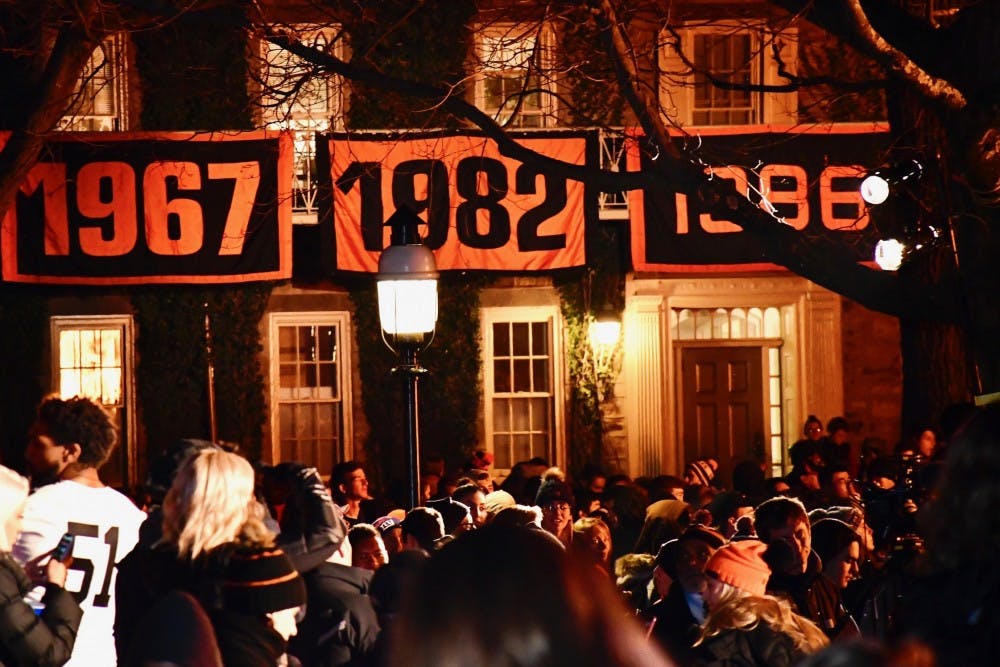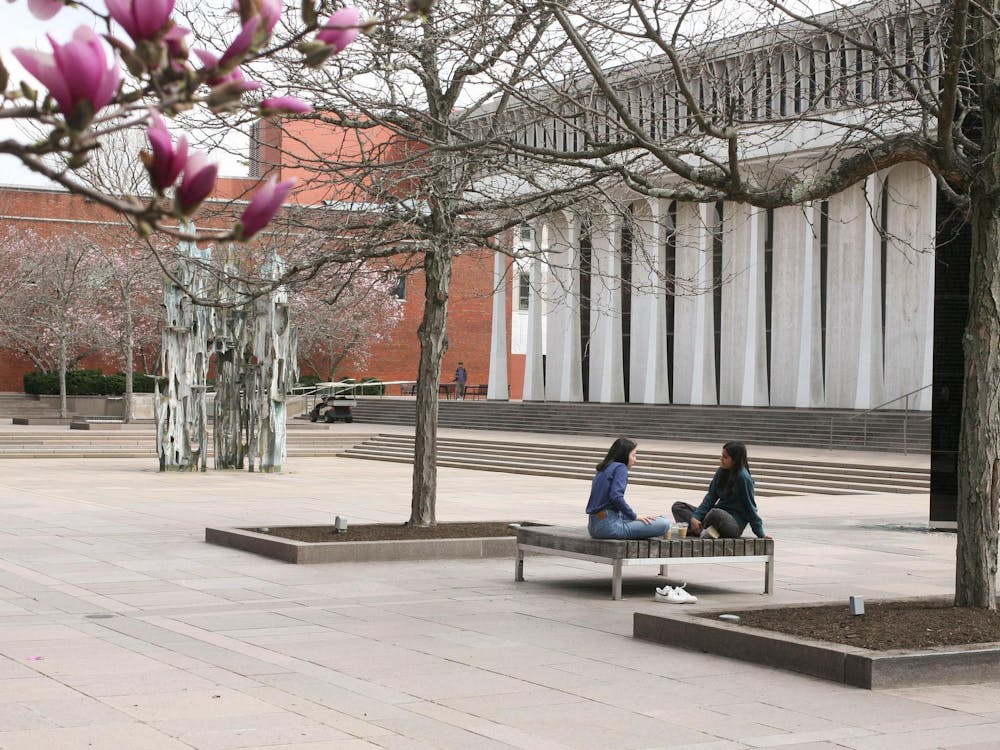The Princeton football team’s victory over both Harvard and Yale was cause for a massive bonfire outside Nassau Hall, a celebration that attracted hundreds of students and alumni. For many, this celebration is a pinnacle of their Princeton experience, considering students are not likely to experience such a victory more than once, if at all, during their time at the University.
Yet, why is this celebration — one that seemingly defines student memory and University commemoration — exclusive to the football team? Other sports teams, including women’s sports teams and above all, the women’s basketball team, have experienced prolonged success, yet we as a community fail to rightfully implement these victories into our institutional memory. For our campus community, the only item worthy of deeply rooted tradition seems to be a celebration of men in a sport that not only excludes women but historically has celebrated whiteness and continues to entertain racism.
Just this year, the women’s basketball team triumphed over Harvard and Yale, winning the the Ivy League title and even advancing to the NCAA tournament.
Of course, these victories are not confined to the women’s basketball team alone. For example, in 1996, the No. 13 seed men’s basketball team took down defending champions and No. 4 seed UCLA, one of the greatest upsets at the time in NCAA history. The women’s open rowing team earned the Ivy League championship for the third year in a row this year. Women’s golf secured its second consecutive Ivy League trophy. Men’s track and field won the Ivy League triple crown for the ninth time in the program’s history.
Yet, for these incredible and historic victories, there was no bonfire, and these victories fail to be instilled in our University’s memory in any meaningful way. Proponents of this celebration for the football team will argue that it is a product of tradition and therefore immovable. But we must seriously ask ourselves — at what point do our traditions continue to celebrate exclusion and prioritize certain students over others? Why is it that our pinnacle method of celebration is tied only to a team of men?
I am not arguing that every sports victory should be a call for such an inferno — this would dilute the uniqueness of the celebration. Perhaps, though, we must reevaluate what constitutes cause for this tradition and open it to other students’ victories as well, or, at the very least, innovate new traditions and means to implement these victories into our institutional memory.
The women’s basketball team’s winning the entire NCAA conference would certainly push our institutions and student body to think of new ways for celebration and memorial. Yet this reflects how much more we force women to earn respect and praise. The football team’s victory over Harvard and Yale is indeed a success, yet we still lend our entire attention to that success alone. After all, such a rarity of victories for the men’s football team against the backdrop of consecutive victories by other varsity sports teams, especially women’s teams, begs us to question our football team’s perceived exceptionality, something with which whiteness and masculinity is assumed to be synonymous.
As noted before, the women’s basketball team is not the only other team that enjoys success. The men’s basketball team also advanced to the NCAA’s March Madness. This victory indeed attracted far more attention than when the women’s team advanced to the same tournament; this reflects a broader problem of men’s sports being far more popular than women’s.
Why does our highest sports tradition, then, only honor football? One only need look at just how white football as an institution can be against a backdrop of Princeton’s own historic racism. The most famous case of football’s institutional racial aggression is that of Colin Kaepernick. The National Football League has offered countless contracts to those convicted of crimes from domestic violence to animal abuse. Kaepernick continues to lack a contract. His crime? Being a black man who does not toe the line when it comes to football’s required patriotism and conservatism.
Of course, racism expresses itself across every sport. For example, Craig Hodges, a professional basketball player for the Chicago Bulls, never received another contract from the NBA after being vocal about police brutality. In addition to feeling respected, every student athlete on our campus should feel comfortable in their own skin and politics. Yet there has been little affirmation of support for athletes of color in wake of Kaepernick’s isolation.
It is therefore unsurprising that Princeton’s tradition is inspired by a sport that has a strong racist history of its own. If we, as a student body, are serious about inclusion and the potential of every student, we need to reflect on our own traditions and not blindly play into institutional norms that have for too long alienated so many. We can — and must — innovate new traditions and customs that honor women’s teams and athletes of color.
Avner Goldstein is a sophomore from Greenville, S.C. He can be reached at amkg@princeton.edu.









